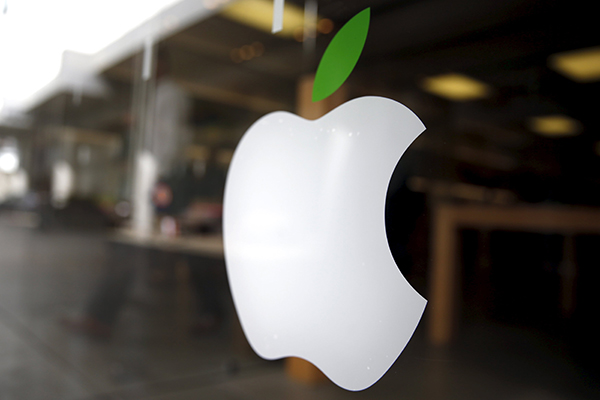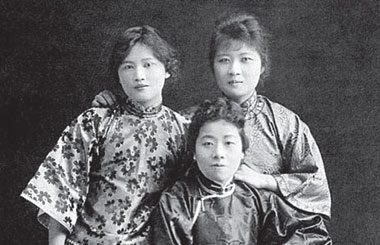Apple expansion to India poses little threat to China market
Updated: 2016-06-07 07:38
By Wyatt Bush and Siva Sanker(China Daily)
|
|||||||||
An Apple store is seen in Los Angeles, California, United States, April 22, 2016. [Photo/Agencies]
Apple Inc's gaze is again shifting its focus eastward-now to India.

Following meetings with Indian leaders last month, including Prime Minister Narendra Modi, it is increasingly apparent that Tim Cook, chief executive officer of Apple, has his eyes set upon expanding the company's operations in the developing country.
The foray comes after Apple announced it will be creating a center in Hyderabad that develops Apple Maps and is expected to eventually host as many as 4,000 employees. Furthermore, in a news release, the company pledged to open its first ever iOS app design and development center at Bengaluru in early 2017.
Meanwhile, the Economic Times of India reported that Apple supplier Foxconn Technology Group is nearing completion of a deal that would reportedly allow it to establish a $10 billion plant for Apple products in Maharashtra.
Foxconn announced in May that it was hoping to develop 10 to 12 facilities-including data centers and factories-in India by 2020 that could employ up to 1 million people.
Tarun Pathak, a senior analyst of mobile devices and ecosystems at Counterpoint Technology Market Research, said at least in the short term, there is nothing for the Chinese to worry about in terms of competition for manufacturing jobs from Apple and Foxconn's expansion into India.
Pathak said there is currently little demand for Apple's relatively expensive products and noted that Apple's share of the smartphone market volume in India is only about 3 percent.
"India is still a small market compared with China, but it provides a long-term investment opportunity for Apple," said Pathak.
During Apple's 2016 second-quarter earnings call, Cook said he was encouraged by Apple's Indian growth, highlighting its promise. In the 2015 fiscal year, revenue topped $1 billion for the first time in India, while year-on-year second-quarter revenue increased 56 percent.
"But I view India as where China was maybe seven to 10 years ago from that point of view, and I think there's a really great opportunity there," said Cook.
Pathak disagreed with Cook's assessment, and said India more probably trails China closer than Cook admitted.
"Seven years is likely exaggerated. Historically, what happens in China only takes two to three years afterward to happen in India," said Pathak.
In contrast to its Indian growth, Apple sales in China-the Chinese mainland, Taiwan and Hong Kong-have been declining. January to March revenue fell 26 percent year-on-year to $12.5 billion.
Di Jin, research manager of International Data Corp China, said the decline in Chinese sales is representative of greater competition. That is unlikely to change.
Pathak said regulatory hurdles and other potential setbacks spell trouble for immediate expansion in India, where Apple needs a way of attracting more first-time users. Therefore, despite slumping sales, movement from China is all the more improbable.
Another concern for India is its relative underdevelopment. Annual per capita income in China and India stands at $7,990 and $1,617, respectively, according to reports from the International Monetary Fund.
With such an income gap, it should be unsurprising that in India, 80 percent of phones cost $150 or less, roughly a quarter the average cost of Apple's cheapest available device, the iPhoneSE. In an interview with NDTV, a leading Indian news broadcaster, Cook admitted Apple's prices were relatively high in India, clarifying that much of the cost was due to duties and taxes.
There are not enough Indians who can afford Apple devices at such high prices, while in China, there is both the demand and income necessary for a continuing fertile market.
Jin expressed skepticism at Apple's expansion into India having an impact on its Chinese strategy. She said at least for the next few years, even with rising Chinese labor costs and greater incentives to invest in a relatively untapped Indian market, any pivot at China's expense is unlikely and any impact on the market overall will be relatively small.
Pathak largely agreed, saying there are no grounds for immediate concern.
Related Stories
India to become one of Apple's next market drivers 2016-05-23 17:02
Apple, 'Orange' deal a punch, give the lie to rhetoric 2016-05-20 08:14
Didi president drops hints for Apple's $1b investment 2016-05-19 14:49
CEO says Apple to help China's apps go global 2016-05-17 02:48
Apple's CEO Tim Cook's eight visits to China 2016-05-17 07:23
Today's Top News
Xi urges Washington to boost trust
Council of Europe unveils security convention
Former PM warns of chaos in case of Brexit
Basic income plan rejected by Swiss voters
Eyeing the goal in European football
Suddenly, it's a small world
China looking forward to trade talks with EEU: MOC
Russia to promote EAEU-China economic cooperation
Hot Topics
Lunar probe , China growth forecasts, Emission rules get tougher, China seen through 'colored lens', International board,
Editor's Picks

|

|

|

|

|

|







